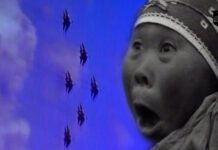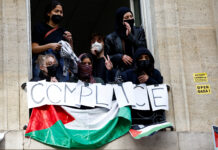[untitled]
by Gayatri Chakravorty Spivak
_
The bitter lesson that we have learned since the middle of the twentieth century is that national liberation is not a revolution. The world is full of postcolonial civil strife or class/gender apartheid. The era of national liberation movements has given us heroes; but after liberation, without experience and practice of freedom, the postcolonial polity sank back into situations which provoked Assia Djebar to cry out in Algerian Whites, “O Frantz, the wretched of the earth again!,” now in the context of internal civil violence. Nelson Mandela joins the rank of the genuine heroes we have inherited from unbroken confidence in national liberation. As Fernand Braudel has taught us, we cannot ignore the longue durée—the old perennial structures that continue to operate beneath, beyond, and above the narrative history that we tend to prefer. In the postcolonial world, hero worship and ancestor worship stand in the way of the production of the will to social justice. Those of us interested in building postcolonial democracies think that these heroes should be slowly and carefully transformed into teaching texts. In the case of Nelson Mandela, the strongest teaching element is the unconditional ethical—the risky imaginative activism that dares to say yes to the enemy. If one enters the protocol of the heroic life with critical intimacy, reading its text as the symbolic telling us about the subject’s relationship to the imaginary—the greatest collective imaginary of colonial oppression being precisely the dream of liberation—it is possible, again with the greatest care, not to exclude the cronyism and the economic betrayal but to point at it as the transformation of the longue durée into historical symptomaticity of even the most extraordinarily heroic among us, to make the hero a human warning for those of us who are merely human without the heroism. This is a transformation of the imitatio Christi idea of role model, today emphasized in faith-based leadership initiatives. We cannot forget that this is the substance of the greatest genre the world has seen, not confined to Hellenic culture alone: tragedy, the tragic hero of history. It is with the greatest respect that one places today the figure of our brother Nelson Mandela in that teaching gallery.
I asked Paul Bové if I could use my example of using Nelson Mandela as a teaching text that comes from ten years ago—there to undo the longue durée of the color line of caste—and he agreed. I quote myself, then:
Two girls, between eleven and fifteen years of age, show me what they are being taught in primary school. It is a piece about South Africa. They have absolutely no clue at all what the piece is about, as they don’t about any piece in the book, about any piece in any book. They tell me their teachers would go over the material again the next day.
The next day after school, we meet again. Did the teachers explain? “Reading poriyechhe,” is the answer—an untranslatable Bengali phrase for which there are equivalents in all the major Indian languages, no doubt. “They made us read reading” would perhaps convey the absurdity? Any piece is a collection of discrete spelling exercises to be read in a high drone with little regard to punctuation. The scandal is that everyone knows this.
After the girls’ answer, I begin to explain. If the older girl was just frustrated by not grasping at all what I was trying to explain, the younger one, the strikingly intelligent one, faced me with that inexorably closed look, jaws firmly set. No response to repeated careful questions going over the same ground, over and over again, simplifying the story of Nelson Mandela further at every go. These are students who have no concept or percept of the neighboring districts, of their own state of West Bengal—because they have arrived at Class Four through neglect and no teaching. How will they catch the reference to Africa?
Into the second hour, sitting on the floor in that darkening room, I tried another tack. Forget Africa, try shoman adhikar—equal rights. We were locked together in an effort to let response emerge and blossom with its own energy. Perhaps an hour and a half into the struggle, I put my hand next to the bright one’s purple-black hand to explain apartheid. Next to that rich color, this pasty brown hand seemed white. And to explain shoman adhikar, equal rights, Mandela’s demand, a desperate formula presented itself to me: ami ja, tumi ta—what I, that you. Remember, this is a student, not an asylum seeker in the metropole, just two students, accepting oppression as normality, understanding their designated textbook.
The next morning, I asked them to set down what they remembered of the previous day’s lesson. The older one could call up nothing. The younger one, the more intelligent one, produced this: “ami ja, tumi ta, raja here gachhe”—what I, that you, the king was defeated. A tremendous achievement in context, but, if one thinks of all the children studying under the West Bengal Board, including the best students from the best schools in Kolkata, with whom these girls are competing, this is a negligible result. I have no doubt that even this pitiful residue of the content of the lesson is now long lost and forgotten.




[…] “Mandela’s Reflections: Meditations and Interventions from the boundary 2 Collective.” […]